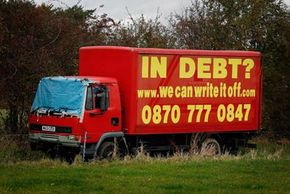Peeking out from under your pile of bills is a postcard that looks like your saving grace: smiling, happy people proclaiming that they are free from debt -- and that you can be, too! The company's Web site is filled with testimonials from cheery faces, all saying how the company freed them from debt. Even better, the company says it's non-profit, so it has your best interest in mind, right? Unfortunately, that isn't always the case.
Advertisement
Debt consolidation companies help people in debt by combining all of their outstanding payments (credit cards, student loans, medical debt) into one payment [source: Chatzky]. Often, the debtor takes out a new, lower-interest loan to cover this payment. The consolidation company may also offer credit counseling and may negotiate with the credit companies to reduce the amount of debt owed. So how do they do it? Non-profit debt consolidation companies can offer their services for little to no cost through funding from donations, creditors and government grants.
Just as there's no magic pill for baldness, weight loss, or wrinkles, there's no magic pill for eliminating debt quickly, completely and easily. Even with a legitimate non-profit debt consolidation company, it will still take years to wipe out debt. Consumers have to be careful of the temptation to spend more since they have a new loan. If you use a car or house as collateral on the loan, the bank can seize it if you default on payments. Using a debt consolidation service could also affect your credit report [source: DebtHelp].
Picking a not-for-profit debt consolidator can be difficult. Some companies abuse their non-profit status. Others seem local, but are actually located in another country. Read on for how to choose the right non-profit debt consolidator for you.
Advertisement

